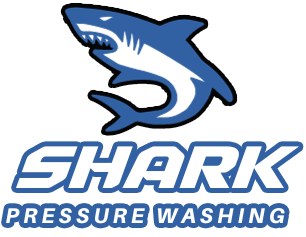High-Pressure, Low Impact: The Eco-Friendly Side of Pressure Washing
Pressure washing is often seen as a high-powered cleaning solution, but many people worry about its environmental impact. Can something so powerful actually be sustainable? Scientists refer to this as the ‘green pressure paradox’ – the idea that deep cleaning can be both effective and eco-friendly. The good news? With modern technology and mindful techniques, pressure washing can deliver a spotless finish while minimising water use and chemical runoff.


Can Pressure Washing Be Sustainable?
A common misconception is that pressure washing wastes water. In reality, modern pressure washers use less water than a garden hose. Traditional hoses can use up to 35 litres per minute, while high-efficiency pressure washers use as little as 5 litres per minute. This means you can clean more surface area with far less water.
Sydney’s Water Restrictions & Compliance
Sydney has strict water usage regulations, especially during drought conditions.
Most professional pressure washing services adhere to Water Wise Guidelines, ensuring compliance with local laws.
Advanced pressure washing equipment is designed to optimise water use while delivering powerful results.
Eco-Friendly Cleaning Agents: Do They Work?
Why Choose Green Cleaning Solutions?
They break down naturally without polluting soil or water.
Safe for pets, children, and surrounding wildlife.
Just as effective as traditional cleaners for removing mould, grime, and grease.


Common biodegradable agents include:
Citrus-based degreasers – ideal for cutting through oil stains.
Plant-based surfactants – effective on dirt and mildew.
Enzyme-based cleaners – break down organic material without harsh chemicals.
Water-Saving Technology in Pressure Washing
Professional pressure washers are designed to minimise waste. Newer models include automated shut-off systems, which stop water flow when the trigger isn’t engaged. This small change alone can save thousands of litres per job.
The ‘Smart Pressure’ Approach:
Soft washing: Uses lower pressure and specialised cleaning solutions to reduce water usage while still being effective.
Targeted cleaning: Instead of blasting entire surfaces, trained professionals use precise techniques to clean only where needed.
Water reclamation systems: Some services collect and recycle water to reduce waste.


The Benefits of Eco-Conscious Pressure Washing
Lower water bills – Less water means lower utility costs.
Longer-lasting surfaces – Gentle, eco-friendly methods protect driveways, decks, and siding.
Improved air quality – Removing mould and mildew reduces allergens and improves air circulation around the home.
Better property value – Clean, well-maintained exteriors increase curb appeal without harming the surrounding environment.
The Future of Green Pressure Washing in Sydney
With growing concerns about climate change and water conservation, the cleaning industry is evolving.
Trends to Watch:
Solar-powered pressure washers – More businesses are using solar energy to power equipment.
Rainwater collection for cleaning – Capturing rainwater reduces dependence on mains supply.
Advanced filtration systems – These prevent harmful runoff from entering storm drains and waterways.


Not Wasteful, Just Effective
Gone are the days when pressure washing was seen as wasteful. Today’s technology and techniques prove that you don’t need to sacrifice sustainability for effectiveness. Whether you’re sprucing up your driveway, prepping your home for sale, or maintaining a commercial property, choosing an eco-conscious pressure washing service means you can achieve outstanding results while protecting the environment.
Ready for Eco-Friendly Pressure Washing?
Frequently Asked Questions about Eco-Friendly Pressure Washing
Is eco-friendly pressure washing as effective as traditional methods?
Will pressure washing damage my home’s exterior?
How much water does pressure washing use?
Modern pressure washing equipment is designed for efficiency, using significantly less water than traditional hose cleaning. Some systems use as little as 50% less water while delivering superior results.
Can pressure washing remove mould and mildew?
Is it safe to pressure wash around plants and gardens?
How often should I pressure wash my home?
For best results, pressure washing is recommended once a year to prevent buildup of dirt, algae, and pollutants that can degrade your home’s exterior over time.

